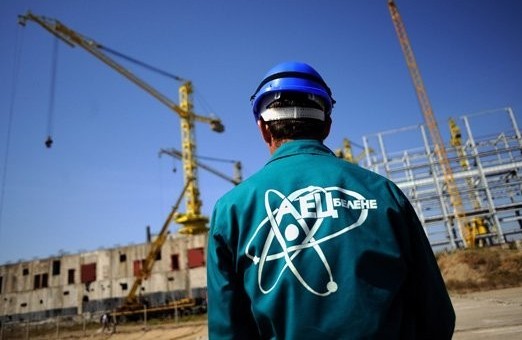MYSTERIOUS US INVESTOR WANTS BULGARIA'S PLANNED BELENE NUCLEAR POWER PLANT
There is a request by a foreign, non-Russian investor to buy the Belene nuclear project. This was announced in Pleven by ABV Vice President and former interior minister and mayor Rumen Petkov on Monday. The letter from the mysterious investor is submitted to the Council of Ministers, said Petkov, citing its sources in power. The information was confirmed to Standart by a confidential source, who revealed that the investor is American, yet is not Westinghouse, the US company participating in the development of Bulgaria's sole existing Kozloduy NPP.
The investor has declared that it is looking for state guarantees for financial resources to be invested in the project or a long-term contract for the purchase of electricity produced and is ready to work on an approved project, said Petkov.
The Belene Nuclear Power Plant is a planned nuclear power plant 3 km from Belene and 11 km from Svishtov in Pleven Province, northern Bulgaria, near the Danube River.
On June 11, 2010, the Bulgarian government announced that it would freeze indefinitely the planned construction of the Belene nuclear power plant because it was uncertain when the investment would be returned. Five months later, on December 2, a non-binding memorandum of understanding was signed between NEK EAD, Rosatom, Altran and Fortum, setting up a 6.3 bln. euro price on the power station, after months of unsuccessful talks on the cost and redeemability of the project itself. Further disagreement and the persistent demands of the Bulgarian government to lower the cost under 5.0 billion euro led to the termination of the project in March 2012. However, in late 2012 the opposition initiated a referendum petition which was supposedly signed by over 600 thousand people and the first national referendum in the history of modern Bulgaria was held on January 27, 2013. A majority of the people had voted Yes but despite that, the amount of voters who bothered to attend the voting was too low for it to pass. The referendum passed the question further to the Parliament, which decided on 27 February 2013 to suspend it. Later on 30 May 2013 the newly elected Cabinet Prime Minister Oresharski announced there is a possible restart for it.
Копирано от standartnews.comThere is a request by a foreign, non-Russian investor to buy the Belene nuclear project. This was announced in Pleven by ABV Vice President and former interior minister and mayor Rumen Petkov on Monday. The letter from the mysterious investor is submitted to the Council of Ministers, said Petkov, citing its sources in power. The information was confirmed to Standart by a confidential source, who revealed that the investor is American, yet is not Westinghouse, the US company participating in the development of Bulgaria's sole existing Kozloduy NPP.
The investor has declared that it is looking for state guarantees for financial resources to be invested in the project or a long-term contract for the purchase of electricity produced and is ready to work on an approved project, said Petkov.
The Belene Nuclear Power Plant is a planned nuclear power plant 3 km from Belene and 11 km from Svishtov in Pleven Province, northern Bulgaria, near the Danube River.
On June 11, 2010, the Bulgarian government announced that it would freeze indefinitely the planned construction of the Belene nuclear power plant because it was uncertain when the investment would be returned. Five months later, on December 2, a non-binding memorandum of understanding was signed between NEK EAD, Rosatom, Altran and Fortum, setting up a 6.3 bln. euro price on the power station, after months of unsuccessful talks on the cost and redeemability of the project itself. Further disagreement and the persistent demands of the Bulgarian government to lower the cost under 5.0 billion euro led to the termination of the project in March 2012. However, in late 2012 the opposition initiated a referendum petition which was supposedly signed by over 600 thousand people and the first national referendum in the history of modern Bulgaria was held on January 27, 2013.
A majority of the people had voted Yes but despite that, the amount of voters who bothered to attend the voting was too low for it to pass. The referendum passed the question further to the Parliament, which decided on 27 February 2013 to suspend it. Later on 30 May 2013 the newly elected Cabinet Prime Minister Oresharski announced there is a possible restart for it.









